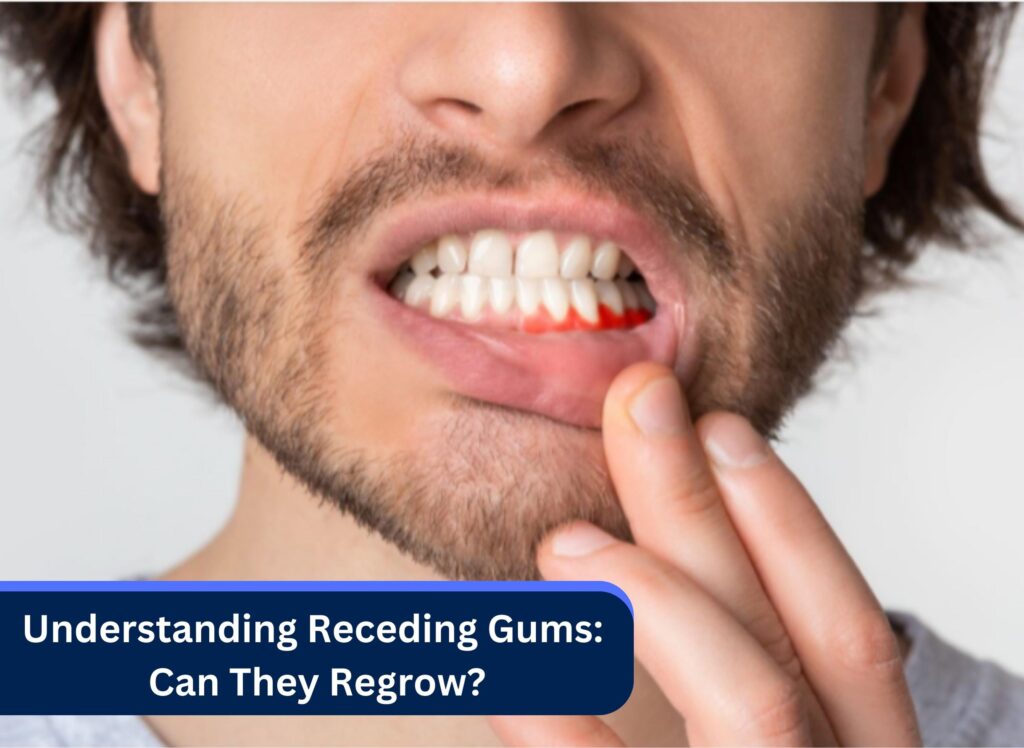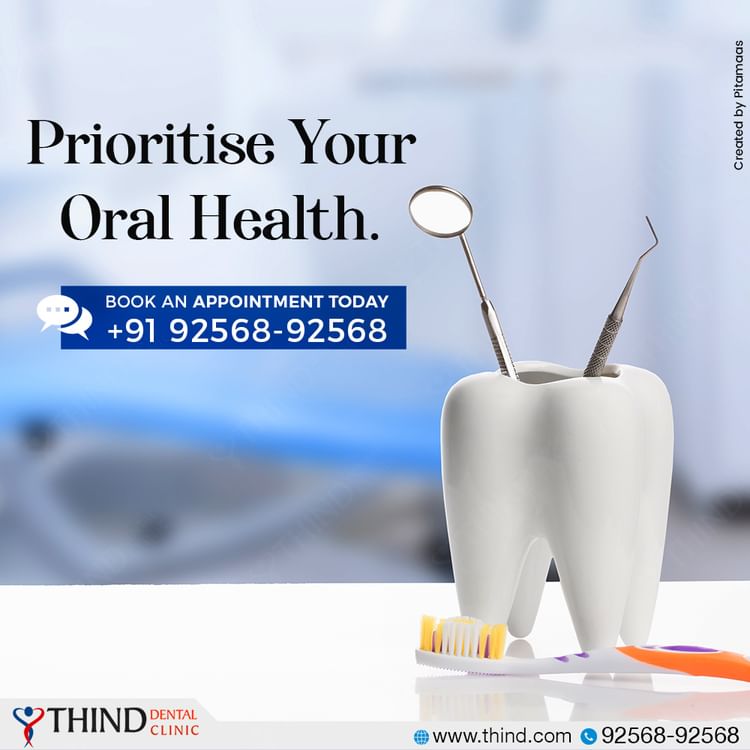Your smile is often the first thing people notice about you, and healthy gums play a crucial role in that winning smile. However, receding gums can be a common concern, affecting both your oral health and self-confidence. The big question on many minds is, can receding gums regrow? In this comprehensive guide, we will delve into the causes, consequences, and potential solutions for receding gums, including whether regrowth is possible.
The Anatomy of Gums
Before we discuss receding gums, let’s first understand the anatomy of healthy gums. Your gums, also known as gingiva, are the soft tissues that cover and protect the jawbone and tooth roots. Healthy gums are firm and pink and fit snugly around each tooth, forming a protective barrier against harmful bacteria.
What Are Receding Gums?
Receding gums, also known as gingival recession, occur when the gum tissue that surrounds the teeth starts to pull away or wear down, exposing the tooth roots. This can create small pockets or gaps between the teeth and gums, which can be a breeding ground for bacteria and lead to various dental issues.
Causes of Receding Gums
Several factors can contribute to gum recession:
1. Gum Disease (Periodontitis): This is one of the leading causes of gum recession. Advanced gum disease can damage the supporting structures of the teeth, causing the gums to recede.
2. Poor Oral Hygiene: Inadequate brushing and flossing can lead to the buildup of plaque and tartar, which can irritate and inflame the gums, potentially causing them to recede.
3. Aggressive Brushing: Brushing your teeth too hard or using a toothbrush with hard bristles can damage the delicate gum tissue and lead to recession over time.
4. Tobacco Use: Smoking or using smokeless tobacco products can increase the risk of gum disease, which, in turn, can lead to gum recession.
5. Genetics: Some individuals may be genetically predisposed to have thinner or more delicate gum tissue, making them more susceptible to recession.
6. Hormonal Changes: Hormonal fluctuations, such as those during pregnancy, can make gums more sensitive and prone to recession.
7. Teeth Grinding (Bruxism): The habit of grinding or clenching teeth can put excessive pressure on the teeth and gums, potentially leading to recession.
Consequences of Receding Gums
Receding gums can have several undesirable consequences, including:
1. Increased Tooth Sensitivity: Exposed tooth roots are more sensitive to hot and cold temperatures, leading to discomfort.
2. Aesthetic Concerns: Gum recession can make teeth appear longer, which some people find aesthetically unpleasing.
3. Tooth Mobility: In severe cases, gum recession can lead to tooth mobility or looseness.
4. Risk of Tooth Decay: Exposed tooth roots are more vulnerable to tooth decay, as they lack the protective enamel covering the crowns.
5. Gum Pockets: Recession creates pockets between the teeth and gums where bacteria can thrive, increasing the risk of gum disease.
Now, the big question remains: Can receding gums regrow on their own, or do they require intervention?
Natural Regrowth of Gums
The human body has an incredible capacity for self-healing, and in some cases, gums can naturally regrow to a certain extent. This natural regrowth, however, has limitations. The extent of regrowth depends on various factors, including the cause of the recession, the severity of the condition, and individual biology.
In cases where gum recession is mild and caused by factors like aggressive brushing or hormonal changes, improving oral hygiene practices and addressing the underlying cause may encourage limited regrowth. For instance:
– Gentle Brushing: Switching to a soft-bristle toothbrush and using gentle brushing techniques can prevent further gum irritation.
– Good Oral Hygiene: Maintaining consistent and thorough oral hygiene practices, including regular brushing and flossing, can help prevent further recession and promote gum health.
– Addressing Hormonal Changes: In cases where hormonal changes contribute to gum recession, such as during pregnancy, the recession may improve once the hormonal imbalance is resolved.
However, it’s crucial to note that once gum recession reaches a certain point, natural regrowth is limited. In such cases, professional intervention is necessary.
Professional Treatments for Receding Gums
When natural regrowth is insufficient or when gum recession is more severe, professional treatments are essential. Dental experts at Thind Dental Clinic in Ludhiana can provide various treatment options, including:
1. Scaling and Root Planing: This deep cleaning procedure removes tartar and bacteria from the tooth roots and helps the gum tissue reattach to the teeth.
2. Gum Grafting: Gum graft surgery involves taking gum tissue from another area (usually the roof of the mouth) and grafting it onto the recessed gumline. This procedure can cover exposed tooth roots and promote gum regrowth.
3. Pinhole Surgical Technique (PST): PST is a minimally invasive procedure that repositions existing gum tissue to cover exposed roots. It requires no grafts or sutures and offers a faster recovery.
4. Laser Therapy: Laser treatment can stimulate gum tissue regeneration and remove diseased tissue, promoting healthier gum growth.
5. Orthodontic Treatment: In some cases, orthodontic treatment can help reposition teeth, reducing the appearance of recession.
It’s essential to consult with a dental professional at Thind Dental Clinic in Ludhiana to determine the most suitable treatment plan for your specific case.
Preventing Receding Gums
Prevention is always the best strategy. Here are some pointers to help you avoid gum recession:
– Maintain appropriate dental hygiene practices, such as brushing and flossing regularly.
– Gently brush your teeth with a soft-bristled toothbrush.
– Avoid smoking, which increases the risk of gum disease.
– Address teeth grinding or clenching with a dental professional.
– Seek prompt treatment for gum disease or any other oral health issues.
– Stay hydrated to ensure a moist oral environment.
Conclusion
In conclusion, while natural regrowth of receding gums is possible to some extent, it has limitations, especially in cases of moderate to severe gum recession. Professional intervention from experienced dental experts at Thind Dental Clinic in Ludhiana is often necessary to address receding gums effectively and prevent further complications. Don’t hesitate to seek help and take proactive steps to maintain healthy gums and a beautiful smile.
For additional information or to arrange an appointment with us
You can contact us at +91-92568-92568
or visit us at:
THIND DENTAL CLINIC
11-12-13-14 H.I.G Market, Opposite Water Tank, Ludhiana, Punjab 141010.
Also Read:
Single Sitting Procedure: Painless and Affordable Dental Care at Thind Dental Clinic
Dental Care for Children: Expert Tips for Parents on Caring for Your Child’s Teeth
The Importance and Benefits of Regular Dental Checkups: Ensuring Optimal Oral Health
Professional Dental Implants: Restoring Smiles with Precision and Care at Thind Dental Clinic in Ludhiana

 Timings
Timings


